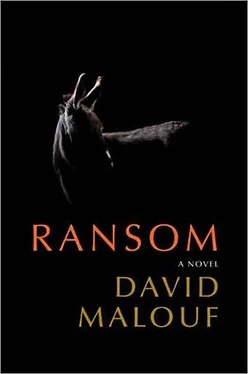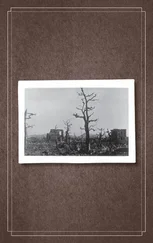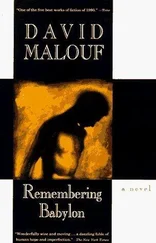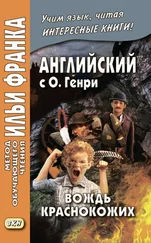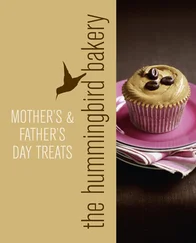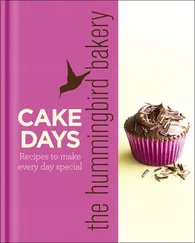The truth was that none of his sons was in that sense particular. Their relationship to him was formal and symbolic, part of that dreamlike play before the gods and in the world’s eye that is both the splendour and the ordeal of kingship. He could not even be sure of their actual number. Fifty, they said.
But that was only a manner of speaking, a good round number. A bid, a powerful one, for the world’s regard, an aggressive purchase on the future; clear evidence of a godlike activity in the sphere of breeding and begetting, another aspect of the necessary show. Like the list of his allies, or the measures of gold and the suits of embossed and finely worked armour, the cauldrons and tripods and precious cups that made up his fabled treasury. The actual number he could not swear to. Two or three more than fifty? Two or three less?
Of course he was in each case the source of their life, the forceful agent by which, in an onrush of manly desire, or out of habit or kingly duty, as he lay with Hecuba or with one of his many other wives and concubines, this or that prince had sprung into being.
The occasion itself was personal enough — none more so, the most personal of all. How else speak of that falling so pleasurably into the great dark, that sighing of the spirit into the very mouth of death, and in the midst of all, the rush of tender affection — for Hecuba, for instance, the first and dearest of his wives — and the sweet words that passed between them as they lay together afterwards; the hundred playful episodes in which they whisperingly teased and tempted one another. Like children themselves. Blessed, utterly blessed, and naked before the gods.
But as for the particular little offspring of so much high activity — his Isus, or Dius, or Troilus — well, he had no memory of any one of them as a three-year-old wiping the milk from his mouth, or sweating and racked with fever. He had never knocked any one of them to the ground and afterwards hugged his fist and regretted it. Such an act of violent intimacy was hardly within his comprehension. Nothing in the world he moved in would have permitted such a thing. Any more than he would have abandoned the austere stance he was constrained to by sweeping one of them up onto his shoulders and swinging round and round till the little body was limp with an excited shrieking.
Did he regret these human occasions, and the memory of them that might have twined his sons more deeply into his affections and made his relationship with them more warm and particular?
Perhaps.
But hadn’t he been saved something as well?
When the years arrived in which, one after the other, his sons were brought in from the battlefield and he had twenty times over to stand by a corpse and pour out wine, and give the pierced and bloodless or hacked body a name, wouldn’t he have suffered twenty times over if, as he held the brand to the pyre, he had had to remember how this one’s sweat, when he crowned him once after a wrestling match, had had an odour of the stable as rank as any groom’s; and how that one had had a little spinning top, and had fallen once when he went stumbling after it on the palace floor, and had recognised, with an unexpected onrush of recall, the star-shaped scar that was still visible on the young man’s cheek, just inches from where a Greek javelin had shattered the jaw, smashed the teeth and taken a piece the size of his fist out of the back of his skull? Even the ghostly recollection now of what he had never in fact allowed himself to see made his old heart leap and flutter.
Royal custom — the habit of averting his gaze, always, from the unnecessary and particular — had saved him from all that. And yet it was just such unnecessary things in the old man’s talk, occasions in which pain and pleasure were inextricably mixed, that so engaged and moved him.
‘And the other?’ he found himself asking, almost before he was aware of it. ‘You spoke of two sons.’
‘Ah,’ the man sighed. ‘That happened only last spring, my lord. As chance would have it, not a hundred paces from here.’
He had taken up a stick and he threw it now far out into the stream. The fishlings, destined to be disappointed again, darted in towards the circles of light that went pulsing from where it fell, themselves for a moment making a small disturbance on the surface before the river went back to its own life again.
‘There’s another fording place down there. Not so easy as this one, but not difficult either if you know what you’re about. Closer to the road. It was her fault, that little off-side mule I’m so fond of, Beauty, though I wonder at myself sometimes, she can be a bad-tempered creature if things don’t suit her. She must have lost her footing halfway across. It was spring and the river was high and running fast over the gravel. He would have been trying to get her upright. She must have taken panic and knocked him sideways and they were both swept out into the stream.’
He rubbed his nose, as previously — it was, Priam saw, a little habit with him — and sniffled. From off among the shadowy tamarisks came something like the hooting of an owl.
‘We found him late the next morning — I’d been out all night looking for them — all tangled in the reeds on the other bank. And she, silly creature, she’d just walked out easy as you please and never looked back, and was grazing with her halter loose, in a patch of meadow-sweet. Switching her tail and pricking her ears when she caught sight of me.
‘Of course she had no notion of what she’d done. But I was beside myself. I felt like punching her where she stood. But what would have been the good of that? That wouldn’t have brought him back.
‘I ended up taking her head in my arms and sobbing fit to break my heart. It was such a comfort just to hold on to her, and feel the warmth of her, and the scratchiness of her hide against my cheek. But whether it was for grief at my loss, or joy that she was safe, I can’t tell you, sir. We’re such contrary creatures. Maybe both. Anyway, since then I’ve been that fond of her, you wouldn’t credit. She’s all I’ve got left of him. Her and the daughter-in-law, and the little girl. I’m sorry, sir —’ He lowered his head and brushed a rough hand across his eyes, and Priam, whose own eyes had moistened, looked away.
Almost imperceptibly while they were sitting dusk had come. ‘My lord,’ the carter said, ‘it’s getting dark, we should think of moving.’
He got slowly to his feet and, bending to dip his hand in the stream, splashed first his eyes, then his mouth and beard. Gathering up a fistful of his robe, he used it, rather delicately, to dab at his cheeks.
Priam looked about. It was true. A silvery greyness touched the river and the sandbars with their thickset bushes. The change had come quickly. Now that he was alerted to it, he saw that the river-colours were deepening, even as he watched, from blue-grey to a blackish purple.
He was sorry they had to move on. He had got used to the place and the small pleasures it provided, not least of all the opportunity to sit and listen to the other’s talk. He would remember all this. The rosebay bushes with their long pointed leaves, that grew so strongly out of the sand and gravel between the streams. This cooling water that lapped his feet. The fishes. The high thin whining of the midges. There was a scent that seemed sharper now that other scents were fading with the sun — some herb. He would remember that too.
The carter was on his knees, folding his things in a neat bundle. When Priam stood and stepped out of the water, he produced a napkin and offered to dry the king’s feet.
‘That’s the way, sir,’ he coddled, as Priam, like a child, very placid and biddable, raised first his left, then his right foot to be dried, and when the driver indicated that he should resume his sandals, repeated the action so that the man could fit them and fasten the cords. They set off then through the feathery pink tamarisks to where the cart and the tethered mules were waiting.
Читать дальше
